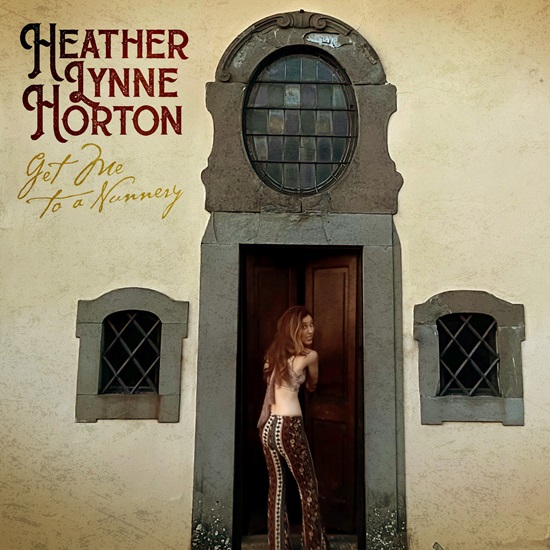
‘Get Me to a Nunnery’ is Heather Lynne Horton’s third album, following 2012’s ‘Postcard Saturdays’ and 2017’s ‘Don’t Mess with Mrs Murphy’. You might think that’s a fairly relaxed pace, but she has had other priorities, including raising her daughter and collaborating with her husband, Michael McDermott, on his solo and Westies albums. She’s even done a bit of touring with Michael as well. As you might expect, Michael features heavily on the album along with other collaborators like Will Kimbrough, although the concept, production and direction of the album are purely down to Heather.
There’s a theme running through the album which is strongly hinted at by the title. It’s the oppression of outsiders and minorities; the ones who don’t have the power to challenge when they’re told “That’s just the way it is”. There are some production and musical themes that run through the album as well. There’s an overall dreamy, ethereal feel that’s partly created by Heather’s layered lead and backing vocals that hint at sixties-era Marianne Faithfull, particularly on the album’s opening song.
‘After All This Time’ is slightly uncharacteristic in that underneath Heather’s vulnerable vocal the song builds up to a Spector-like wall of sound arrangement as it tells the story of a relationship that’s survived everything life can throw at it.
The two most vehemently anti-oppression songs on the album both feature Heather’s violin playing. ‘Ten Times’, with its lead vocals panned left and right deals with difficulties women find when the have to work ten times as hard as men to succeed and ‘Call a Spade a Spade’ with a sparse, almost sinister arrangement enhanced by the occasional single sour piano note as it highlights the racism that is still with us almost seventy years after Rosa Parks refused to give up her seat on the bus.
‘You Said So’ and ‘Take Off’ both have an autobiographical flavour, with the latter metaphorically linking air travel with a career in the music business highlighting the conflict between family and professional life; you can’t give one hundred per cent to both. The album’s final piece, ‘Lin’s Never-Ending Song’ is a condensed classical string quartet, hinting at Bach, with several movements and various tempi and techniques, including a pizzicato passage and lots of counterpoint that demonstrate Heather’s violin and arrangement virtuosity. It’s a lovely way to finish the album.
The dreamy soundscapes of ‘Get Me to a Nunnery’ create a seductive and subversive framework to soften you up before Heather delivers the subtle lyrical punches. The album was inspired by and is dedicated to Sinead O’Connor, who died just as the recording was completed; it’s a fitting tribute.
‘Get Me to a Nunnery’ is out now on Pauper Sky Records (PSR015).
Here’s the video for ‘After All This Time’:
As an added bonus, here’s a shot of Heather from her UK tour with Michael McDermott in 2017:

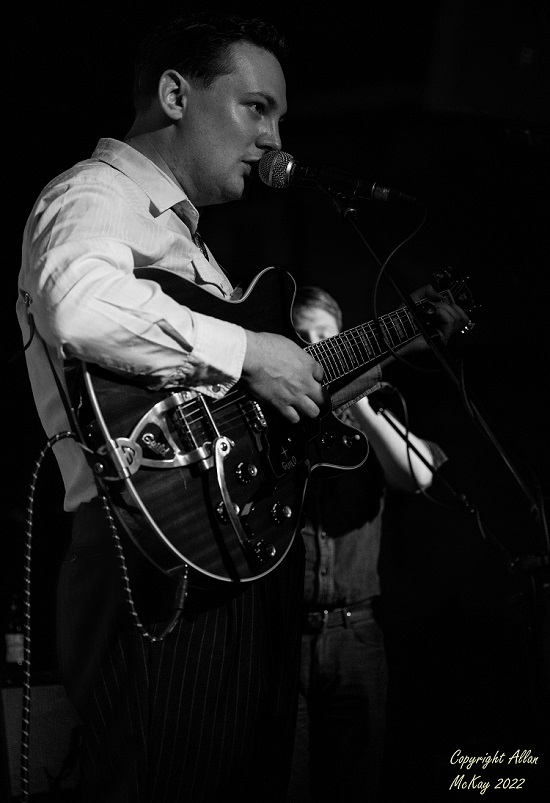
This probably needs a bit of explanation, mainly about the reason why Music Riot exists. What we’re about is promoting music that’s worth listening to but probably isn’t going to get too much mainstream attention. We know that we can’t make a difference for Springsteen or Dylan (not that either of needs any help) but we just might persuade a few people to listen to a Rob Heron album. The five favourites we’ve chosen are all albums that we’ve reviewed this year, so don’t expect to see anything mainstream there. What they have in common is that they’re all good (we don’t believe in negative reviews – there’s enough negativity without us adding to it) and they all deserve to be heard. In no particular order.
St Paul’s Boulevard – Michael McDermott
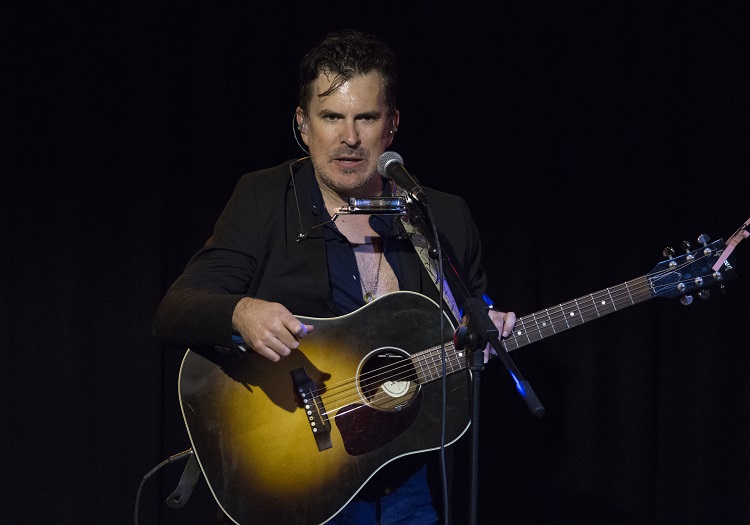
Michael’s been a big favourite at Riot Towers since The Westies ‘Six on the Out’ in 2016 and with good reason. He’s a great songwriter steeped in the tradition of American popular music, whatever the genre. He can also persuade great players to work with him (Will Kimbrough for example) on his albums. ‘St Paul’s Boulevard’ is an album that looks back with gritty realism at Michael’s difficult past, and forward to a positive with clear-eyed, multi-hued optimism. The title track’s a wonderful piece of work, harking back to Michael’s early Chicago days and describing one of those places we probably all have that were important to us because of the people we met there. And the great lyric: “None of the heroes around here have capes, they’re just talking in taverns and on fire escapes”.
‘Paper Hearts and Broken Arrows’ – Rod Picott
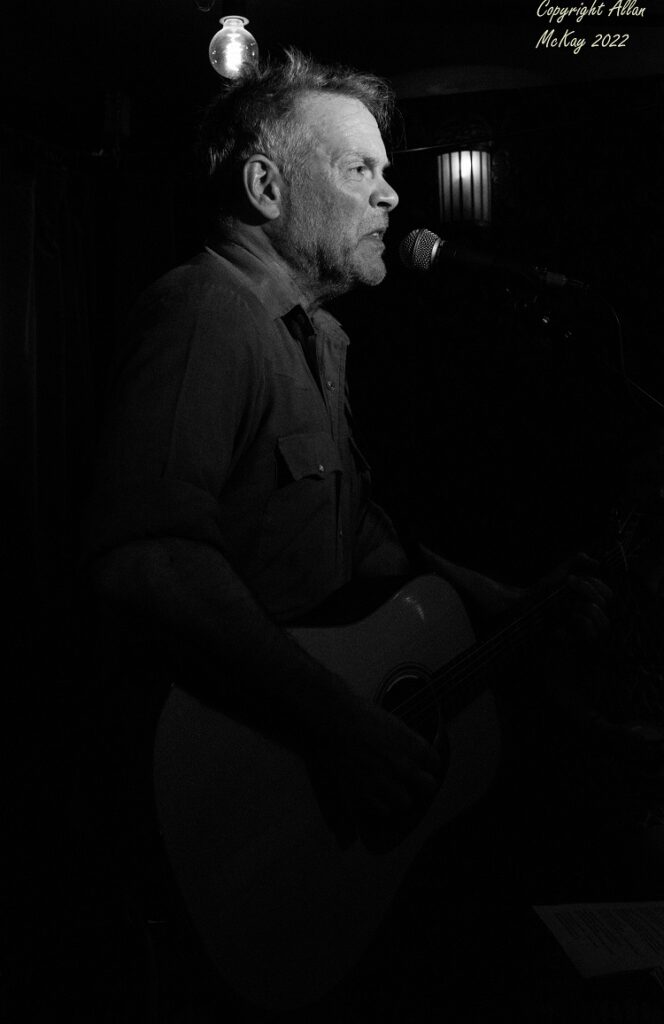
Like Michael McDermott, Rod is another Music Riot favourite. I should also say they’re both great people as well. ‘Paper Hearts and Broken Arrows’ is a potent mixture of songs that range from the very personal through social comment to the historical. ‘Revenuer’ has an interesting history; it’s based on a Taylor Brown novel about moonshine runners, but when Rod mentioned this to Taylor, he fessed up to stealing the idea from Steve Earle’s ‘Copperhead Road’. The other song that really caught our attention was ‘Sonny Liston’, Rod’s exploration of the complicated life of the heavyweight boxer. Let’s finish on a great lyric again: “Two big fists pumping like pistons, nobody punched like Sonny Liston”.
Every Seed we Plant’ – Alice DiMicele
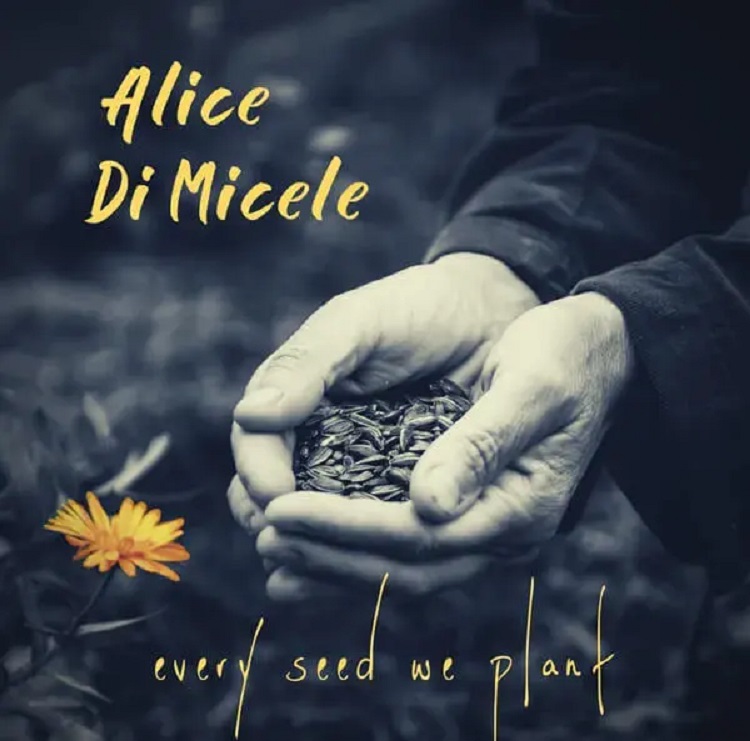
Alice’s sixteenth album is one of the many we reviewed in 2022 that’s influenced by the pandemic that we somehow managed to live through. The songs on the album have a huge emotional range, from raging anger to a heart-warming dog story. ‘Dispatch’ is a very angry song about the killing of a retired black Marine in his own home in White Plains, New York after mistakenly calling in a Life Aid medical alarm – it’s harrowing. ‘Dear Elaine’ is at the opposite end of the spectrum; it’s a tale of the healing relationship built between a woman and her dog. The album takes a journey from historic raw rage to a positive look into our future. Alice’s vocals need a mention as well; she has a huge dynamic range from a sweet whisper to a rock growl. There’s a bit of everything here.
‘Leo’ – Pete Gow
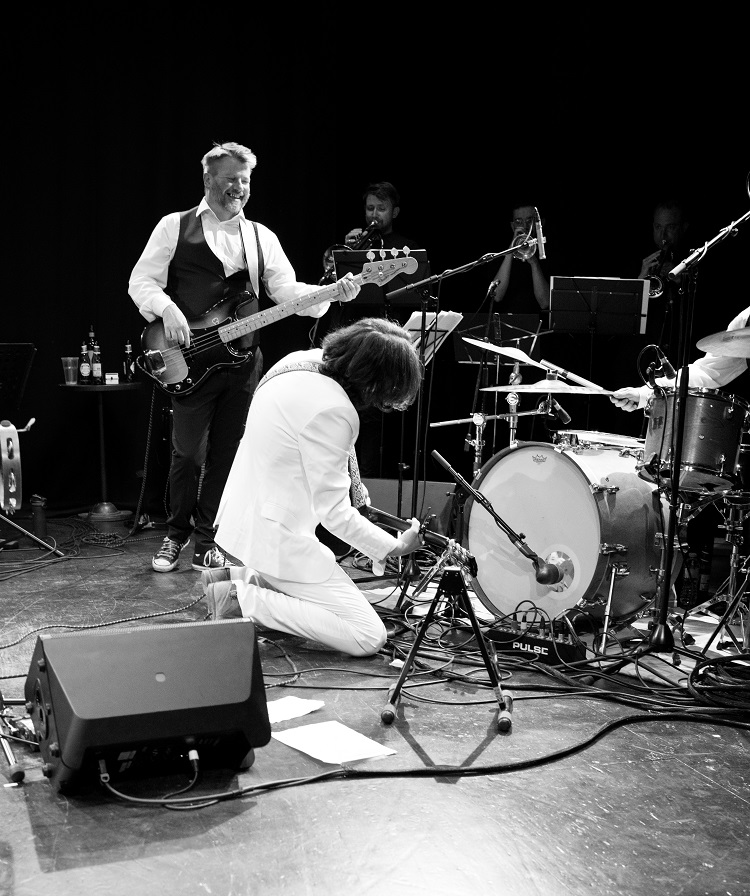
Pete’s a very interesting songwriter. He’s a former member of Case Hardin (with the brilliant Jim Maving) and, as a Scottish songwriter living in and writing about London, there’s an inevitable comparison with the late Gerry Rafferty. ‘Leo’ is a full-blooded production featuring a rock band, string section and a horn section with arrangements by Joe Bennett creating some really interesting textures to back up Pete’s fascinating narratives. If you want two highlights, ‘Side III of London Calling’ paints a post-gig picture of a seedy musician on the pull, while ‘Leonard’s Bar’ is the classic ‘one last job’ petty criminal story. The album hangs together really well and the songs sound great in a live setting. And Pete’s a nice guy as well.
‘The Party’s Over’ – Rob Heron & the Teapad Orchestra
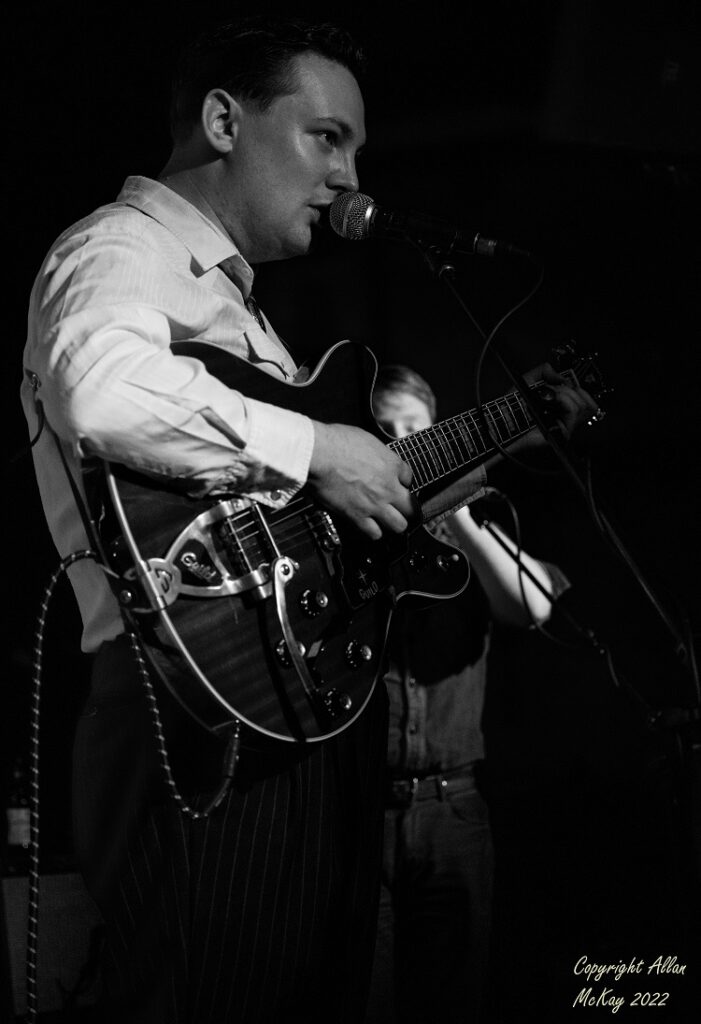
So let’s get this over with first, Rob’s a great guy as well. He read the Music Riot review of this album just before going on stage at the London gig at The Lexington and made a couple of references to it on stage. The album continues Rob’s tradition of eclectic musical influences and even a few political references as well. ‘Snip Snap Snout’ is nonsense zydeco (which is exactly what Rob intended it to be), ‘The Horse That You Rode In On’ channels the Frankie Laine classic ‘Rawhide’ and the light-hearted ‘The Doctor Told Me’ pulls in the House of the Black Gardenia horns to create a New Orleans funeral band feel. I did say it was eclectic. And, like everyone else mentioned here, you really should see Rob & the Teapad Orchestra live – they’re phenomenal.
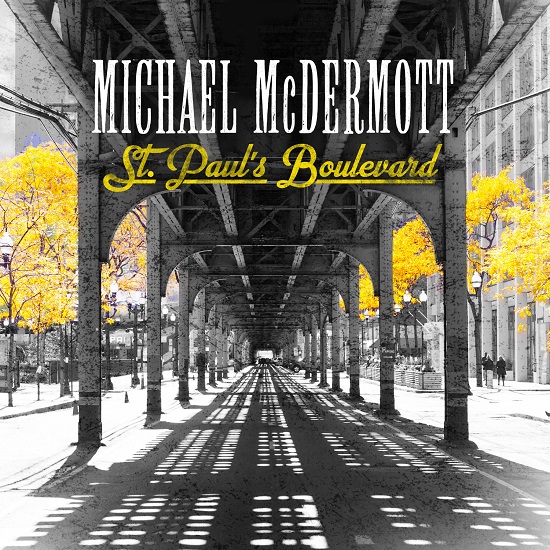
Michael McDermott isn’t making life easy – every year he releases an album (sometimes even two) that grabs your attention immediately with quality of the songwriting, the quality of the playing and arrangements, and the sheer variety of influences from the classic American pop/rock songbook. The difficulty lies in trying to think of something new to say about this steady sequence of excellence. There are some easy comparisons to make, but when all of those have already been made, it’s a challenge to know where to go next. I guess it’s safe to say that ‘St Paul’s Boulevard’ is a continuation of the winning sequence; it’s a classic album that would be huge if we still had a significant market for albums.
There’s a narrative running through Michael’s work since The Westies ‘Six on the Out’ of degradation, recovery and redemption. ‘St Paul’s Boulevard’ feels like a postscript to that narrative, looking back to the lowest of times with clear-eyed detachment and looking forward to the future with technicolour optimism. As you would expect from a Michael McDermott album, ‘St Paul’s Boulevard’ is packed with historical, geographical, mythological, literary, biblical and popular culture references, particularly ‘Marlowe’ which is a nod in the direction of Deacon Blue’s ‘Real Gone Kid’ and a tribute to Raymond Chandler’s sleuth Philip Marlowe.
The arrangement of title song is a slow builder; the ambient intro with slide and piano gradually fills out into a full band sound as the various characters in the story make their brief appearance. The Boulevard is that place we have in our history that’s full of possibility for triumph or tragedy; the place where we met characters that would have positive and negative impacts on our lives. There are a few references to heroes on the album and the most telling is probably in this song: “None of the heroes around here have capes, they’re just talking in taverns and on fire escapes”.
Michael McDermott isn’t afraid of throwing in musical or lyrical references; ‘Where the Light Gets In” has a hint of Coldplay’s ‘Higher Power” and the obvious Leonard Cohen reference, while there’s plenty of chiming guitar in Byrds/Tom Petty/Flaming Groovies style. While we’re on the subject of guitars, a true master of the fretted stringed instrument plays on the album and any project featuring Will Kimbrough is going to be good; he plays guitar, mandolin and banjo across the album.
‘St Paul’s Boulevard’ is another powerful Michael McDermott album that blends musical references from folk, soul, country, rock and other areas to produce an album that looks back to difficult times but also looks forward with optimism (“Peace, lave and brilliant colours to you all”). It’s a celebration of this moment and the moments to come.
‘St Paul’s Boulevard’ is out now on Pauper Sky Records (PSR010).
Here’s the video for the album’s final track, ‘Paris’:
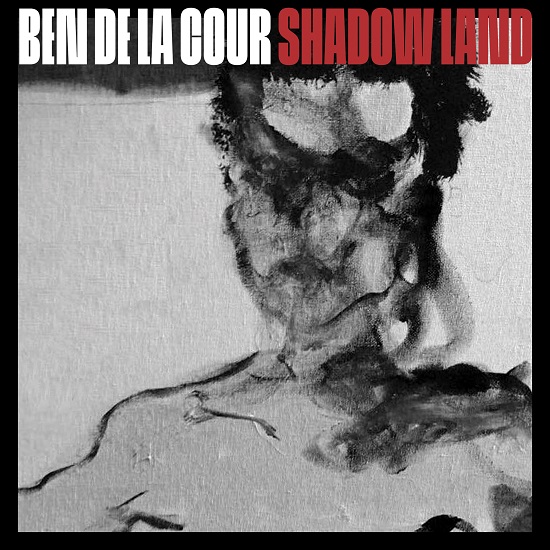
Authenticity’s something that’s often claimed but not always delivered. Not in this case; “Shadow Land” is a powerful and often disturbing collection of songs with a wide variety of themes. And the authenticity isn’t just in the lived experience of Ben de la Cour, although his life suffuses the songs. It’s also in the way the album was made; virtually all of it was recorded live. Brave, perhaps, but vibrant and raw when it’s done well. On “Shadow Land”, it’s done very, very well.
This isn’t a gentle, introspective album of reflective songs tinged with melancholy like Jackson Browne and James Taylor in the seventies. Their hell-raising generally didn’t make it directly into the songs (unless you count “Cocaine” on “Running on Empty”). With Ben de la Cour, it’s a different matter. It doesn’t matter how deep the barrel is, he’ll siphon out the most bitter dregs, then create potent songs from them. If you wanted a more current comparison, Ben has a lot in common with Michael McDermott both in the life lived and in the breadth of musical stylings they use to get the songs across.
“Shadow Land” moves effortlessly from the gentle triple-time pathos of another barely-mourned suicide in “Swan Dive” to the terrifying, hallucinatory “Harmless Indian Medicine Blues” sounding like a half-speed, minor key “Telegram Sam” played by Black Sabbath, with a side order of raw sax. And while we’re on the subject of terrifying, “Basin Lounge” is a full-on, full band romp through the story of a night in one of those bars that sensible people don’t visit, complete with cocaine references. It’s on the edge of falling apart at any time and conveys the stimulant headrush perfectly when the manic guitar solo kicks in.
The album isn’t just about the personal. There’s a smattering of murder ballads in there as well. The album opens with “God’s Only Son”, the tale of double-crossing bank robbers set to an Ennio Morricone-style arrangement, complete with whistling and mandolin while “Amazing Grace (Slight Return)” is a much more mellow take on a hushed-up murder in a small town. There’s also a takedown of corporate greed in the swamp-rock of “In God We Trust … All Others Pay Cash”, but the focus is mainly on the searingly honest depictions life in general and of the Janus faces of dependency and recovery in particular.
Two of the standouts in this vein are “The Last Chance Farm”, a gentle, bleak story of two characters meeting in rehab and the title song with its dystopic alienation and a perfect description of eternal damnation: ‘The Revolutionary Suicide Jazz Band plays all night long’. It certainly sounds a lot like Hell to me.
“Shadow Land” isn’t an easy listen; it’s not meant to be. It’s the product of a difficult life and Ben de la Cour doesn’t shy away from honest depiction of this life. The musical settings are perfect for the subject matter of the songs from the terrible clarity and Jack London references of “Valley of the Moon” to the raw rock and hedonism of “Basin Lounge”. You never know quite what’s coming next; it could be Townes Van Zandt, it could be Nick Cave. Whatever it is, it won’t be dull.
If you like your albums spiced with a murder ballad or two, a touch of the supernatural, terrifying stories of substance abuse, suicide, alienation, Armageddon and cross-dressing, then it’s your lucky day.
“Shadow Land” is released in the UK on Friday April 9th on Flour Sack Cape Records (FSCR-0010).
As a special treat, here’s the video clip for “Harmless Indian Medicine Blues”:
 When you think that this is the year music went over the cliff (well, live music certainly) we’ve been pretty busy with album reviews as artists faced difficult choices about whether to release their material in a time when they couldn’t tour to promote it. Despite those difficult decisions, we still reviewed over thirty albums this year and we asked Allan to pick out five of his personal favourites.
When you think that this is the year music went over the cliff (well, live music certainly) we’ve been pretty busy with album reviews as artists faced difficult choices about whether to release their material in a time when they couldn’t tour to promote it. Despite those difficult decisions, we still reviewed over thirty albums this year and we asked Allan to pick out five of his personal favourites.
I’ve always loved the MusicRiot ethos of reviewing; it’s not about trashing albums that we aren’t keen on, it’s about highlighting the albums that we really like and telling the world why we like them. We don’t review high profile albums, nothing we say will help Springsteen, Dylan or Young sell half a dozen more units, but we might actually help someone self-releasing their work, even if it’s only with a quote to use on their next press release. Now I’ve got that out of my system, I’ll tell you about five albums that I’ve had on high rotation this year. As always, in no particular order:
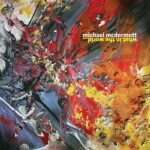 “What in the World” – Michael McDermott
“What in the World” – Michael McDermott
Michael McDermott keeps cropping up in these year end lists, with good reason. He’s a great songwriter and he knows how to present his songs on record and live. “What in the World” was a bit of a departure for Michael; his focus has shifted towards protest songs. When Michael takes a pathway, he commits to it completely. The title song is “Subterranean Homesick Blues” for 2020; it’s a headlong rush through the final year of Trump’s presidency and pulls no punches – ‘It’s not hard to see The President’s a criminal’. While “What in the World” is one of only two protest songs on the album (the other is “Mother Emanuel”), its power and ferocity mean that it defines the album, although there are plenty more songs from Michael’s post-addiction and recovery space to make a great and varied album.
This one was very different from the MusicRiot staples. Maya Rae isn’t the kind of artist we usually hear about from our sources. She sent a demo tape to producer Steve Dawson (Black Hen Records) and he hastily put a band together to record the album in three days. Maya wasn’t even eighteen at the time and she had already been singing professionally for six years. The album’s fresh and zingy and full of the insights about young people’s lives that you can only get from a young person. The musicianship on the album is superb as the band step effortlessly from pop to sinuous funk. Try it, you’ll love it.
I don’t think I’ve ever featured an entirely instrumental album before in my High Fives, but I’d never heard “Iago Banet” before this year. Iago plays in a style that he describes as Galician finger-style from south, south, south, south London. If you haven’t seen Iago play live you would think that each song features at least two guitarists (a bit like Martin Harley’s Weissenborn playing), but only one track on the album features a second guitar and that’s the fun blues hybrid ”Octopus One”. Iago’s playing evokes pictures ranging from Greater London scenes (“Morning at Greenwich Park”) to more prosaic domestic scenes (“There’s a Mouse In my Kitchen”). And there’s also a wonderful swing arrangement of Van Morrison’s “Moondance”. What more could you want?
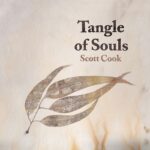 “Tangle of Souls” – Scott Cook
“Tangle of Souls” – Scott Cook
To paraphrase the Marks & Spencer advertising strapline, this isn’t just music. “Tangle of Souls” as a standalone album is a superb piece of work, but it comes packaged with a hefty booklet containing Scott’s writings, printed on had-crafted paper. It all adds to the experience, but the album stands on its own musical and lyrical merits. The album’s centrepiece “Say Can You See” is a political statement that isn’t partisan; it’s about not trusting anyone from the DC elite. The album has more of a political edge than some of Scott Cook’s earlier work, including an update of Dick Blakeslee’s “Passin’ Through”, which includes a reference to 1970s Chilean martyr Victor Jara. It’s an album that will make you listen and make you think.
 “The Sleepless Kind” – Andy Fleet
“The Sleepless Kind” – Andy Fleet
This was another one that came out of left field. Andy is a musician who makes a living in the same way as a lot of musicians these days; a bit of performance, a bit of recording, a bit of teaching and a bit of anything else that comes along. “The Sleepless Kind” tells the stories of the musicians who entertain us in our clubs and bars every night (or did before the onset of this plague) and gives us a unique perspective on Soho through the eyes of an owl. It’s an album that rewards repeated plays and has an end of the day feel to it. You should probably listen while nestling a single malt in one hand.
And here’s a little bonus ball for you. I wouldn’t normally include a compilation in this selection, but this one merits a mention.
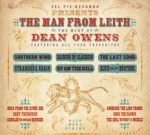 “The Man from Leith” – Dean Owens
“The Man from Leith” – Dean Owens
This is a seventeen-song Dean Owens retrospective. I’ve followed Dean’s work for nearly ten years now and he’s a songwriter who writes beautifully about Scottish and global themes. There are songs about family, songs about friends, songs about events and even a sing inspired by Ronnie Lane. If you want an introduction to Dean’s body of work, then this is the perfect place to start. And whether he’s playing solo or with a band you should try to see him live as well.
 It’s quite a story; Michael McDermott’s short rise and relatively successful start to a career in the early nineties, through a long downward spiral ending in addiction and jail and, ultimately, recovery and redemption. His previous four albums “Six on the Out” (as The Westies), “Willow Springs”, “Orphans” and “Out From Under” cover those themes pretty comprehensively, although Michael McDermott isn’t showing signs of running out of inspiration any time soon. He’s a songwriter who’s equally at home writing pieces that are intensely personal, straightforward love songs, observational songs, fun songs and, on this album, a couple of powerful songs inspired by the state of America in 2020. Whatever he’s writing, he’s never less than totally honest and always completely believable.
It’s quite a story; Michael McDermott’s short rise and relatively successful start to a career in the early nineties, through a long downward spiral ending in addiction and jail and, ultimately, recovery and redemption. His previous four albums “Six on the Out” (as The Westies), “Willow Springs”, “Orphans” and “Out From Under” cover those themes pretty comprehensively, although Michael McDermott isn’t showing signs of running out of inspiration any time soon. He’s a songwriter who’s equally at home writing pieces that are intensely personal, straightforward love songs, observational songs, fun songs and, on this album, a couple of powerful songs inspired by the state of America in 2020. Whatever he’s writing, he’s never less than totally honest and always completely believable.
The furious rush of the title song opens the album, pulling no punches as it tears through the state of the USA today, melding the lyrical helter-skelter of “Subterranean Homesick Blues” with the musical punch of “Born to Run” in a scathing attack on the Trump vision (and we’re done with the Dylan and The Boss references now).
The musical stylings are what you would expect from a Michael McDermott album; there’s a lot of variety. From the headlong charge of “What in the World”, through the finger-picked guitar on “Positively Central Park” and “New York, Texas” to the Motown bounce of “Contender”. The album certainly isn’t one-paced and, as always, demonstrates Michael’s range and versatility. As ever the musicians do exactly what’s needed to get the message over, without ever sounding showy.
Lyrically, the album’s a step away from the quartet mentioned above. The title song and the heart-rending “Mother Emanuel” are both protest songs, while the rest of the album focusses mainly on a couple of themes; the post-addiction space that Michael occupies now, and an exploration of some of the events in his personal history that may have been triggers for the dark period. This isn’t about self-justification, it’s more in the nature of a warning to others of the treachery of that particular slope.
So, which songs pushed my buttons? Obviously, the title song with its stinging attack on USA 2020, including the unequivocal message: ‘It’s not to hard to see The Presidents’s a criminal’ is right up there. “The Veils of Veronica”, the story of someone with too few skins to deal with the world is heart-rending, and the gentle “Blue-Eyed Barmaid” turns the tables on the cliché of the customer pouring out his troubles to the long-suffering barmaid. With eleven new songs (plus a bonus of the acoustic demo of the title song), there’s so much to love here; the songs are intense and Michael’s vocal delivery is impassioned, as always. It’s a grim reality of the music business today that Michael McDermott is unlikely to become rich, but that won’t stop him making music and we’ll all benefit from that.
“What in the World” is released in the UK on Friday June 12th on Pauper Sky Records.
BTW, it passes the Will Kimbrough test as well; he’s on pretty much everything I’ve loved over the last five years and he’s also doing his thing here.
 It gets kind of personal here. I first heard of Michael McDermott in 2016, just before the release of “Six on the Out”. I was at a bit of a professional low point and I was blown away by the searing honesty of Michael’s songs. And where do you go from a low point? Well, obviously, it’s upwards and I’m pleased to be moving in the same direction as Michael McDermott. And that album as The Westies wasn’t Michael’s only release that year; he released the more contemplative solo piece “Willow Springs” a couple of months later. I’ve been passionate about music for a long time now and I don’t think I’ve ever heard two albums from one artist that were so complete released within two months of each other.
It gets kind of personal here. I first heard of Michael McDermott in 2016, just before the release of “Six on the Out”. I was at a bit of a professional low point and I was blown away by the searing honesty of Michael’s songs. And where do you go from a low point? Well, obviously, it’s upwards and I’m pleased to be moving in the same direction as Michael McDermott. And that album as The Westies wasn’t Michael’s only release that year; he released the more contemplative solo piece “Willow Springs” a couple of months later. I’ve been passionate about music for a long time now and I don’t think I’ve ever heard two albums from one artist that were so complete released within two months of each other.
Three years on, Michael McDermott’s creative flame still burns magnesium-bright; the proof is in “Orphans”, Michael’s latest album. Songwriters don’t like to let anything go to waste, and this is a bunch of songs that didn’t quite fit on “Six on the Out”, “Willow Springs” or the equally-superb “Out from Under”. Doesn’t mean they’re not good songs; Southside Johnny’s first three albums, “I Don’t to Go Home”, “This Time It’s for Real” and “Hearts of Stone” are laced with stunningly-good Springsteen songs that wouldn’t have worked on “Born to Run” or “Badlands”. And I’ll seriously fall out with anyone who says that “The Fever”, “Talk to Me” and “Hearts of Stone” aren’t classic examples of the songwriter’s art.
But back to Michael McDermott (although The Boss isn’t an inappropriate reference to throw in here); the songs on “Orphans” are the niggling doubts; those songs that just wouldn’t let go, even after the albums were out there. These songs are seeing the light of day because they deserve to, and because they complete the picture painted by “Six on the Out”, “Willow Springs” and “Out from Under”.
“Orphans” pulls in elements from all three of those albums. These aren’t out-takes; these are great songs that refused to die. The album opens with “Tell Tale Heart”, a song that, in one line, made me question my orthodox view of British socio-political history; that’s not a bad start to an album. Of the remaining eleven songs, there isn’t a bad one and “Sometimes When it Rains in Memphis”, “Full Moon Goodbye” and “Los Angeles a Lifetime Ago” would grace any album. And these are the songs that didn’t make the original cut.
“Orphans” is the missing piece in the jigsaw of the three previous albums, completing the journey from success through degradation to redemption and it’s absolutely essential. It’s out now on Pauper Sky Records and Michael will be in London in early May to launch the album. In the meantime, just have a look at this:
 As ever; songs, not singles. These songs are all from albums that we’ve reviewed this year (that’s Stone Foundation ruled out again – sorry guys). There’s something else, apart from greatness, that links all these choices; they’re not the only songs from the albums they feature on that could have made this list. The albums are all wonderful pieces of work taken as a whole, but they all feature at least two standout tracks that would have been seen as singles in a different musical era. There were difficult choices but ultimately it had to be whittled down to five songs. In no particular order, here are Allan’s favourite five songs of the year; the songs that made his heart soar or made him cry, but definitely made him hit the repeat button.
As ever; songs, not singles. These songs are all from albums that we’ve reviewed this year (that’s Stone Foundation ruled out again – sorry guys). There’s something else, apart from greatness, that links all these choices; they’re not the only songs from the albums they feature on that could have made this list. The albums are all wonderful pieces of work taken as a whole, but they all feature at least two standout tracks that would have been seen as singles in a different musical era. There were difficult choices but ultimately it had to be whittled down to five songs. In no particular order, here are Allan’s favourite five songs of the year; the songs that made his heart soar or made him cry, but definitely made him hit the repeat button.
Just to be contrary, it’s actually the first song on the album, ”Southern Wind”, which was a collaboration with Will Kimbrough. One of the things Dean and Will bonded over was their love of Ronnie Lane, whose influence is all over this one. Having heard it live a few times, where it tends to appear towards the end of the set, confirms the power of the song and allows Dean to riff on repeated choruses by throwing in lines from, for example, “Ooh La La”. It’s fun and it’s memorable; if you don’t love this, you’ve got icicles for ventricles.
 “Love in Wartime” – Birds of Chicago
“Love in Wartime” – Birds of Chicago
Absolutely gorgeous. This clocks in at about the six minute mark but you just want it to keep going. It’s one of those that seduces you in with a gentle intro then builds and builds to the first chorus. And by that time, you’re hooked; you’re there for the duration. Maybe there’s a nostalgia thing there; the feel, the chord progressions are a lot like classic mid-seventies era Bob Seger. The melody’s hummable, the harmonies are superb and it’s hugely uplifting. I dare you not to be moved by this.
 “Out from Under” – Michael McDermott
“Out from Under” – Michael McDermott
This is a song where you just have to accept the Bruce Springsteen comparison because this is a stadium rocker in the mould of “Born to Run”. It’s a monstrous ‘wall of sound’ production driving along by pounding, relentless floor toms and a huge full band arrangement. In the context of the album, it’s the song that represents the start of the upward turn in Michael’s rehabilitation and the uplifting lyrical message is carried along on the tide of a widescreen musical setting. Taken out of the context of the album, it’s a song that FM radio in the States would have been all over in the 80s – not just a powerhouse arrangement, a potent message as well.
 “Son of an Immigrant” – Gerry Spehar
“Son of an Immigrant” – Gerry Spehar
A perfect example of the song that leads you in a certain direction before pulling the rug from under you and twisting the point of the narrative. It’s not just an example of a clever narrative trick; like the rest of the album, this is a powerful commentary on the current state of the USA, and its current leader. The song has a very clear message; if you go back far enough almost everyone’s an immigrant in the land of the free. Like “Out from Under”, it sits perfectly within the context of the album without needing that context to shine as a great song.
 “The Shape of You” – Rod Picott
“The Shape of You” – Rod Picott
Sometimes a song just needs to find the point in your life where it fits. This one happened for me on the Tube on the way back from a gig at Green Note. I’d already heard it a few times but this time it suddenly hit home. It’s about the realisation that someone has become a part of you. In this case because that person has gone, but I guess the image works if they’re still around. The song opens with the image in the title, then develops that image. It’s a really simple idea but beautifully effective. The arrangement’s sparse, with mainly acoustic guitar and vocal with some very subtle Will Kimbrough guitar atmospherics just lurking in the background. Delicate and gorgeous.
There are many other songs that could have been on this list; there’s so much incredible music out there, but these were the ones that were buzzing around my consciousness when I put this together. Have a listen, and I hope you enjoy.
 2018 was a bit of a year, really. There was a strong showing in the first few months of the year and it felt like the early albums would be difficult to beat. Maybe it was a self-fulfilling prophecy or the fact that, for one reason or another, I wasn’t able to review too many albums in the latter part of the year but the early albums were very difficult to beat. I’m only featuring albums that I reviewed here, so great pieces of work like the magnificent Stone Foundation album “Everybody, Anyone” doesn’t get a mention. Oops, it just did. Anyway, as always in no particular order, here are my five favourite albums of the year.
2018 was a bit of a year, really. There was a strong showing in the first few months of the year and it felt like the early albums would be difficult to beat. Maybe it was a self-fulfilling prophecy or the fact that, for one reason or another, I wasn’t able to review too many albums in the latter part of the year but the early albums were very difficult to beat. I’m only featuring albums that I reviewed here, so great pieces of work like the magnificent Stone Foundation album “Everybody, Anyone” doesn’t get a mention. Oops, it just did. Anyway, as always in no particular order, here are my five favourite albums of the year.
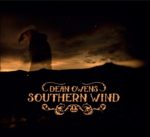 “Southern Wind” – Dean Owens & Will Kimbrough
“Southern Wind” – Dean Owens & Will Kimbrough
I’ve been a fan of Dean Owens since my introduction to “New York Hummingbird” six years ago. Dean’s a consistently great performer whose songs cleverly combine universal themes like love and loss with a particularly Scottish outlook. Over the last few years he’s been increasingly involved in collaborations (with Amy Geddes as Redwood Mountain and the upcoming Buffalo Blood album with Neilson Hubbard and Joshua Britt) and “Southern Wind” was a joint project with the superb and in-demand guitarist Will Kimbrough. The album is a classic; there’s no filler and lots of killer and you can clearly hear the influence of the wonderful Ronnie Lane, particularly in “Last Song”. I wasn’t going to single any particular song out, so how come that just happened. It’s a meeting in the mid-Atlantic between Leith and Nashville and it’s a Thing of Beauty.
 “Psychopastoral” – Phil Burdett
“Psychopastoral” – Phil Burdett
Coincidentally, I first met Phil Burdett on the same night I met Dean for the first time (this stuff isn’t just thrown together, you know) and they’ve both had very different journeys since then. If I had to pick one word for Phil’s attitude to his music, it’s uncompromising, and I mean that in a very, very good way. His back catalogue is all worth checking out, but his latest project “Psychopastoral” is something else. It’s a song cycle which tells the story of the journey home spread out over 24 hours. Sounds simple? This Phil Burdett. The songs are linked by spoken-word interludes and (courtesy of Lyndon ‘Songdog’ Morgan) and musical fragments created mainly by Senor ‘Al’ Franklinos. I know, it sounds like it could be a bit pretentious, as I said, this is Phil Burdett; it works perfectly. And Phil’s gone one step further than Pink Floyd by making the whole project one massive track nearly an hour long to force listeners to hear the project the way it was intended to be heard. Didn’t think I’d ever write a sentence with Phil Burdett and Pink Floyd in it.
 “Out from Under” – Michael McDermott
“Out from Under” – Michael McDermott
We can link this back to Dean Owens as well, because Will Kimbrough plays on this, as he does on a lot of Michael’s recent material. Told you he was in demand. The title song is big in an E Street Band style and, let’s face it, Michael will always get those Springsteen/Dylan comparisons and for all the right reasons. He’s a superb songwriter who understands the American songbook and its highways and byways and isn’t afraid to take a trip down any one of them. The album shifts seamlessly from the pathos of “This World Will Break Your Heart” to the joyful Motown exuberance of “Rubber Band Ring”. I said back in May that I hadn’t heard a better album this year and I stand by that now.
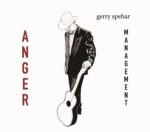 “Anger Management” – Gerry Spehar
“Anger Management” – Gerry Spehar
I loved Gerry Spehar’s previous album “I hold Gravity”. He’s a natural songwriter with a gift for a telling image. So just combine that gift with an exploration of the state of modern America following the election of Kurious Oranj. It’s political in less direct ways as well; “Bitch Heaven” digs into the story of Woody Guthrie’s campaign against Trump Senior and the Beach Haven property, while “Son of an Immigrant” double-underlines the blindingly obvious truth that the vast majority of Americans are immigrants if you go back far enough, including the current occupant of the White House. It’s an angry album, but Gerry is managing the anger by diverting it into creative channels. This is an important album and we should all listen to it.
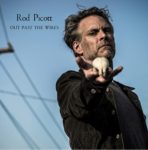 “Out Past the Wires” – Rod Picott
“Out Past the Wires” – Rod Picott
OK, quantity isn’t everything, but Rod Picott defied the current trend for shorter albums and EPs by releasing a double album (twenty-two songs in total). If you have the material and it’s good enough, get it out there. It’s good enough, it’s more than good enough. Will Kimbrough plays on it and also Neilson Hubbard (notice a theme here) but it’s not just about the playing arrangements, it’s also about the stories and that’s what Rod Picott is really good at. In fact, the stories are so important that Rod’s also publishing a book following the lives of some of the characters appearing in the songs and that should really be worth reading.
 The difficulty is knowing where to start here. Michael McDermott’s output over the last two years as The Westies and a solo artist has been prolific and profound. Making up for lost time; who knows? Michael’s four years clean and sober; 2016’s “Six on the Out” and “Willow Springs” made references to his lost years, while “Out from Under” tells the whole story from degradation through rehabilitation to redemption, pivoting around the album’s central song “Out from Under” and the decision to take responsibility for his life.
The difficulty is knowing where to start here. Michael McDermott’s output over the last two years as The Westies and a solo artist has been prolific and profound. Making up for lost time; who knows? Michael’s four years clean and sober; 2016’s “Six on the Out” and “Willow Springs” made references to his lost years, while “Out from Under” tells the whole story from degradation through rehabilitation to redemption, pivoting around the album’s central song “Out from Under” and the decision to take responsibility for his life.
“Out from Under” isn’t just about the personal narrative; Michael’s been influenced by many different styles of American music and many of those influences surface on this musical journey. This is Michael’s story channelled through the American songbook. With a project this ambitious, you need a great team and it doesn’t get much better than Heather Horton on violin and vocals and Will Kimbrough on, well, anything with strings really.
The album opens with the brooding, menacing “Cal-Sag Road”; it’s about as low as you can get, a tale of drunkenness, sex and murder. It’s underpinned by Will Kimbrough’s atmospheric, ambient guitar sounds and the darkness of the arrangement mirrors the subject matter perfectly. The first half of the album runs through the ragtime resonator and banjo arrangement of “Gotta Go to Work”, the Southern boogie and “Sympathy For the Devil”-like backing vocals of “Knocked Down” to the Tom Petty-esque “Sad Songs”, depicting the malaise and lassitude of the music business. And then you hit the bottom.
“This World Will Break your Heart” is a pathos-packed series of vignettes pulling in dropouts, miscarriages and loneliness in old age. It’s the most heart-breaking song on the album and you know that things have to brighten up from here on in. And they do; It’s big, it’s anthemic and it has a hint of Springsteen. “Out from Under” is a floor-tom-driven monster of a song that’s as uplifting as anything you’ll hear this year. It’s the way forward, pointing the way for the second half of the album beginning with the idyll of “The Celtic Sea” where a sea voyage serves as a metaphor for the beginning of a redemptive relationship; it’s turbulent at first, but the crew pull together and the voyage looks set to succeed.
The three songs which follow are pure, joyous, celebration of love. “Rubber Band Ring” is a horns and Hammond Motown-style stomper, “Never Goin’ Down Again” sets a commitment to reform against a stadium rock background, while “Sideways” combines gorgeous Stax stylings with a lyrical style that leans towards Dylan or early Springsteen. And then you have the gentle acceptance of a new life in “God Help Us”.
“Out from Under” is a hugely ambitious album that follows Michael McDermott’s personal narrative and succeeds in combining an exploration of the highways and byways of American popular music with creative and poetic lyrics. I haven’t heard anything better this year.
“Out from Under” is released in the UK on Friday May 18, 2018.
Don’t take my word for it, listen to it here and then buy a copy.




 “The Last Song” – Dean Owens
“The Last Song” – Dean Owens